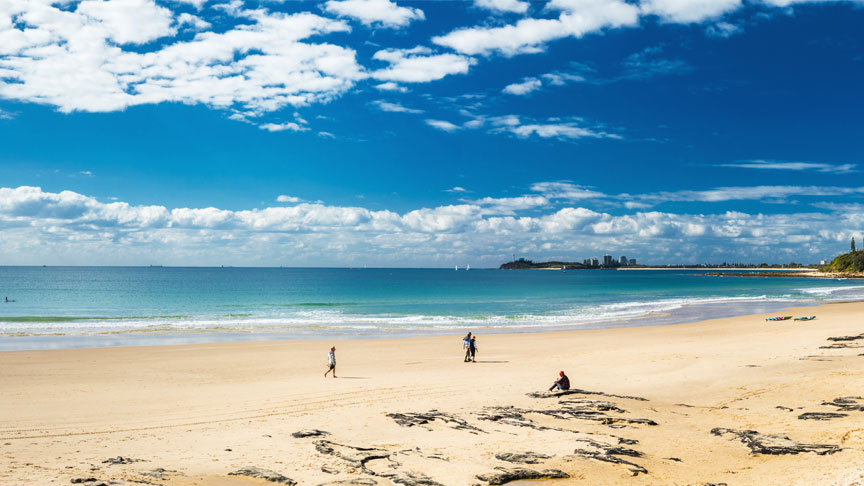
Sunshine Coast Hospital and Health Service (SCHHS) Emergency Physician Ogilvie Thom is urging beachgoers to learn how to stay safe in the surf, with a large number of avoidable neck injuries occurring on local beaches.
Associate Professor Ogilvie Thom works in the Sunshine Coast University Hospital (SCUH) Emergency Department and is a patrolling member of Mooloolaba Surf Lifesaving Club. He’s published research on cervical spine injuries on the Sunshine Coast, which shows around 15 per cent of people presenting to the Emergency Department with broken necks are injured at the beach.
“Working in the Emergency Department, we see an alarming number of patients presenting with cervical spine injuries after visiting the beach. Being dumped by a wave into the ocean floor is the most common cause of neck injuries.”
“Most of these swimmers were injured on below average sized waves, and 10 per cent of injuries were surfers diving off their surf boards into shallow water. The good news is, there are ways to minimise the risk of these injuries,” A/Prof Thom said.
“By falling backwards off your surfboard at the end of wave instead of diving and putting an arm out in front of you while bodysurfing you are much less likely to get a spinal injury.”
“The research shows protected beaches like Mooloolaba and Noosa, where there the waves are smaller, but dump closer to shore sees an increase in the number of cervical spine injuries. It’s important that locals as well as tourists are aware of these safety measures to avoid time in the Emergency Department over Summer.”
Between November 2021 and February 2022, 24 people presented to emergency departments within the Sunshine Coast Hospital and Health Service for cervical spine injuries. This is compared to 20 between November 2020 and February 2021, and five between November 2019 and February 2020.
The Sunshine Coast Hospital and Health Service is collaborating with Water Police and Surf Life Saving Queensland to promote safety in and around the water this summer.
Surf Lifesaving Queensland representative Trent Robinson said the easiest way to stay safe in the water this summer is to swim between the flags.
“The red and yellow flagged areas is set up in the safest part of the beach, and lifeguards will monitor all swimmers in this area.”
Sunshine Coast Water Police urged locals to wear a lifejacket when boating, rock fishing or on a watercraft and don’t drink or take drugs while undertaking water activities.